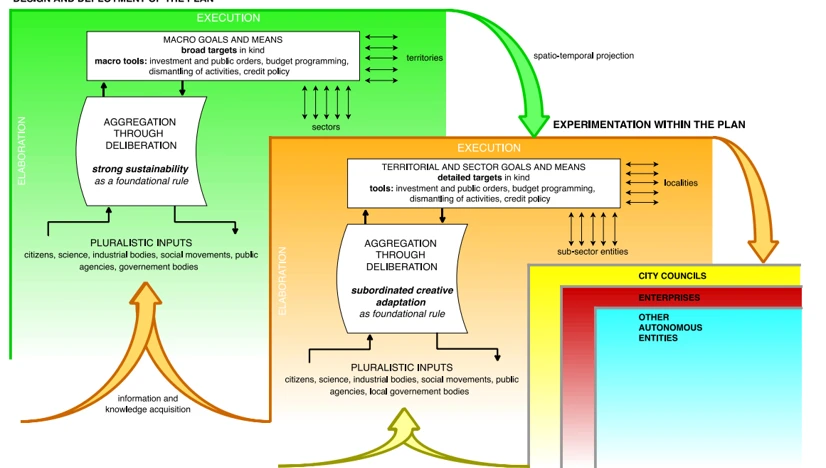Planning beyond growth. The case for economic democracy within limits
Archive ouverte UNIGE, 2023
Abstract:
"Degrowth and post-growth economics has emerged as a particularly fruitful approach in the debates about the reorientation of economies in the Global North towards environmental sustainability, equality, need satisfaction and democracy (Kallis et al. 2018; Parrique 2019; Weiss and Cattaneo 2017; Schmelzer, Vetter, and Vansintjan 2022). This perspective promotes ‘a planned reduction of energy and resource use designed to bring the economy back into balance with the living world in a way that reduces inequality and improves human well-being’ (Hickel 2021, 1, emphasis added). Yet, the specifics of this ‘design’ are not precisely delineated. On the one hand, there is a wide acceptance, at the abstract, most general, even definitional level, that degrowth involves planning or amounts to a planned transition. On the other hand, there is strikingly little explicit engagement with, debate on, and research into what exactly ‘planning for degrowth’ could look. This gap urgently needs to be addressed. By exploring the degrowth-planning nexus, this paper seeks to lay a foundation for this effort. It starts by critically reviewing the existing degrowth and post-growth literature on planning and scrutinise the reasons why planning has so far largely been neglected in this research. Then, it delineates the specific questions, requirements and challenges that arise for planning in the context of degrowth. Finally, it opens some avenues for advancing the intersection between degrowth/post-growth and planning by sketching a possible design for planning processes beyond growth."
Comment from our editors:
The present working paper is dedicated to fill a void in the degrowth literature related to the aspect of planning to achieve post-growth models of societies. The article summarises the main theoretical considerations from three perspectives - neoclassical economics and the steady-state economics, economics of prosperity beyond growth (largely inspired by Post-Keynesian Economics) and finally the anthropological critiques of growth, which tends to focus on localism rather than systemic change. While the two first strands focus on market mechanisms, the authors highlight "how the reliance on markets, market mechanisms and market instruments prevents a substantial engagement with planning" (p.19), the focus on localism and communities of the anthropological critique of growth tends "to block any meaningful engagement with policies for society-wide planning" (p.19). For these reasons, they propose a new framework that focuses on non-market forms of planning and propose multi-level planning institutions to mediate the local level with society-wide and global institutions. Hence, this working paper extends the Doughnut economics model to make it more concrete, via pluralistic and democratic planning, so that our societies can achieve human well-being, while guaranteeing the respect of ecological boundaries.
Go to: Planning beyond growth. The case for economic democracy within limits

